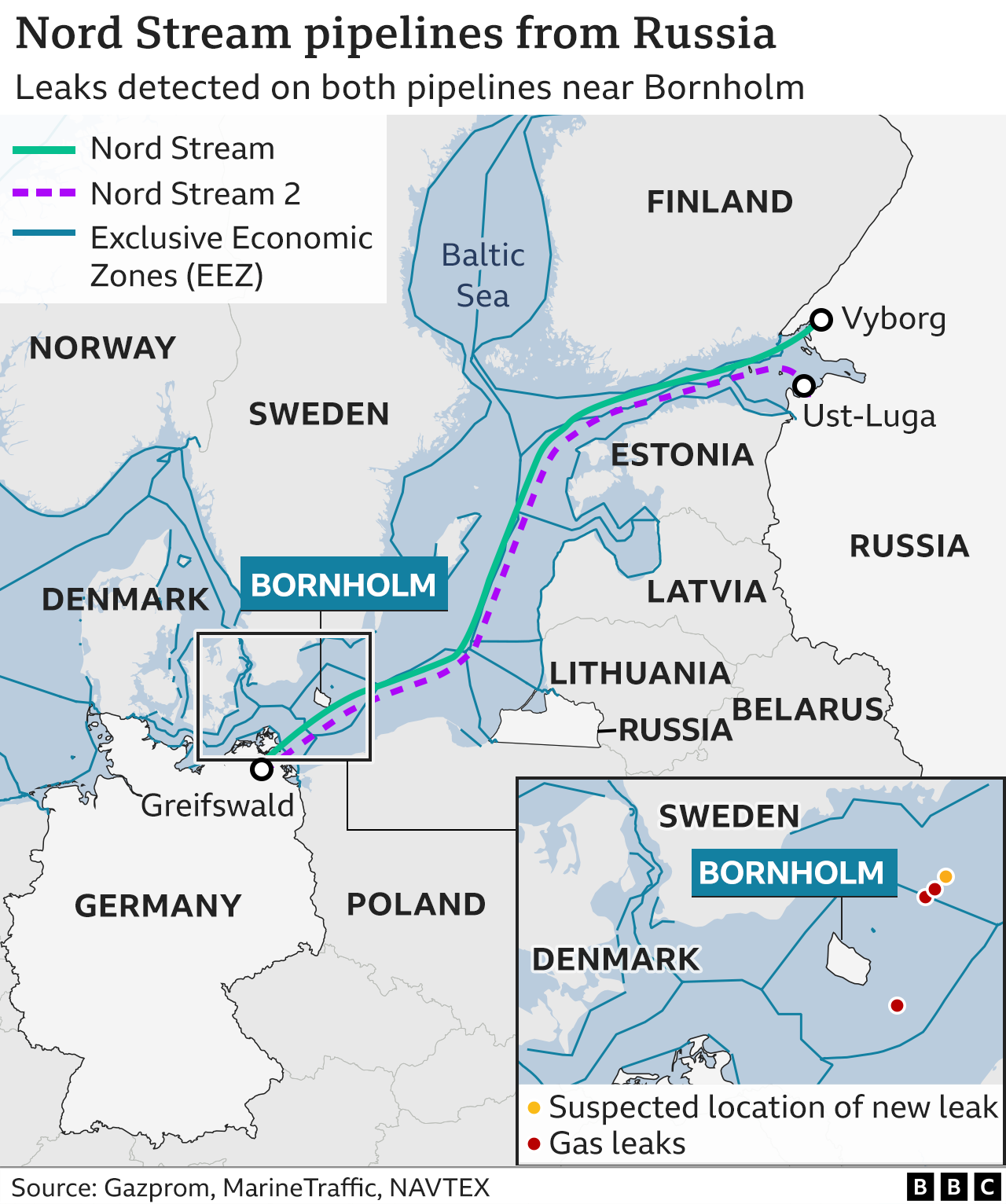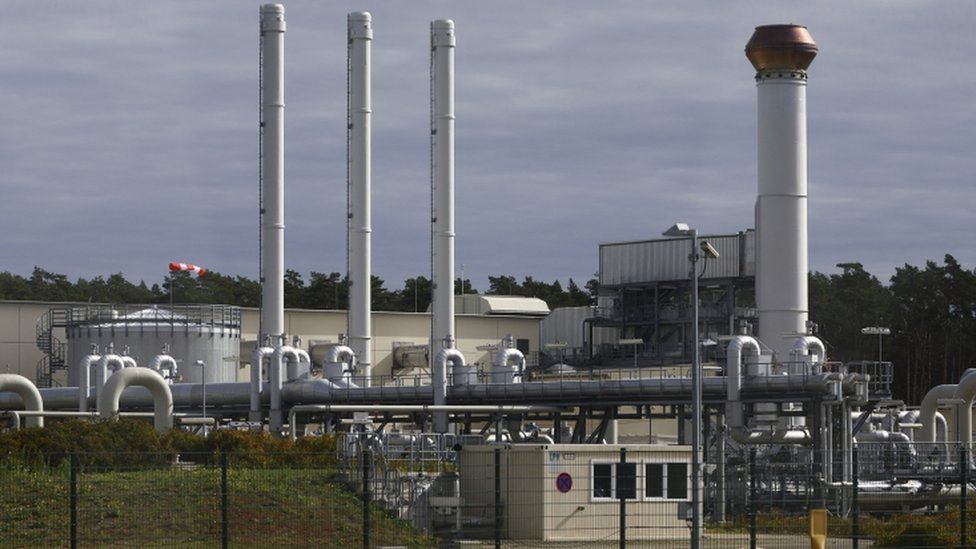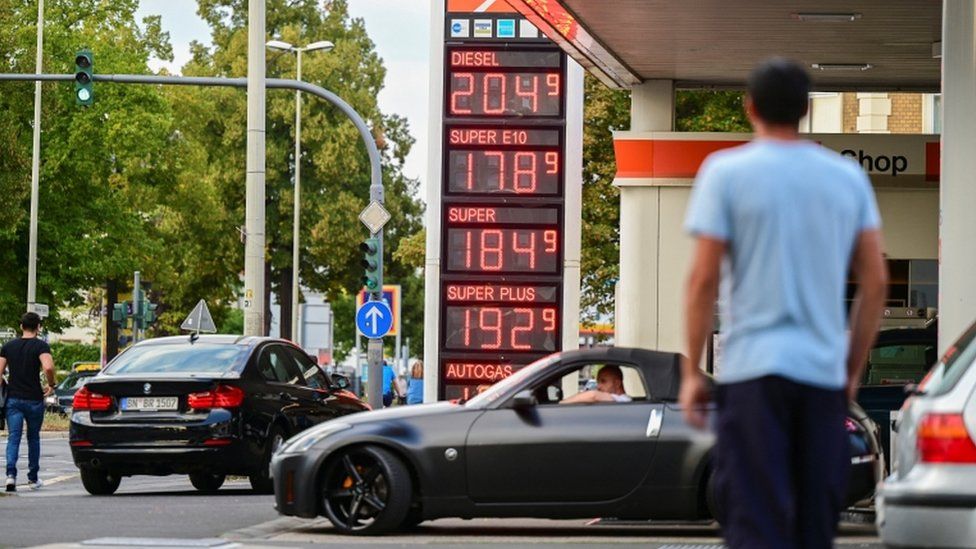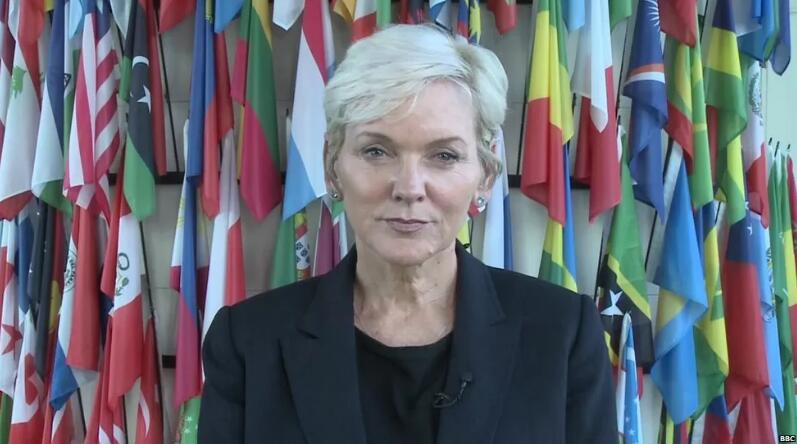The US has said it “seems” Russia is to blame for this week’s leaks in the Nordstream gas pipelines.
US Energy Secretary Jennifer Granholm said an investigation was being carried out into the cause of what she called “an act of sabotage”.
“It is highly unlikely that these incidents are coincidence,” she said, without offering evidence to support the claim.
Russia has dismissed suggestions that it was to blame.
It said suggestions it had damaged the pipelines were “stupid and absurd”.
President Putin described the damage as “unprecedented sabotage, in fact, an act of international terrorism” during a phone call with Turkey’s President Erdogan, according to the Kremlin, which added Russia plans to bring it up for “urgent discussion” at the UN Security Council.
Earlier Russia’s Foreign Ministry suggest it was the US that stood to benefit from the pipeline being out of action because it would be able to increase its own natural gas sales.
The White House has dismissed such suggestions.
“It’s probably most likely some form of sabotage,” according to Mike Fulwood of the Oxford Institute for Energy Studies.
“If there was one incident of a pipeline rupture of leak then accidental damage could be a possibility, it is very rare.
“The most likely cause of accidental damage is an anchor being dropped and dragging across the pipeline”.
He added that with multiple leaks in a short period of time “doesn’t sound like it could be accidental, although theoretically it could be”.
The high water pressure at the bottom of sea makes a detonation difficult, according to energy engineering expert Professor Russell Johns of Penn State University.
He says “it is not likely that the Russians detonated their own pipeline. They could have simply cut-off gas to the pipeline entrance” if they wanted to stop supplies.
The money Russia continues to receive for its fossil fuels is helping fund its invasion of Ukraine.
“Unreliable energy partner”
The gas escaping from the pipeline near the Danish island of Bornholm has been in the pipe since the beginning of September when Moscow closed it off, saying repairs were needed to a vital artery in supplying Europe’s energy needs.
Ms Granholm suggested the energy relationship between Russia and Europe was being consigned to history.
“I think Russia has proven itself to be an unreliable energy partner,” she said.
“No country wants to take the risk of putting a significant amount of its energy demand to Russia’s supply. I think this accelerates the EU’s push to become energy independent through clean energy”.

The war in Ukraine has had a profound impact in pushing up global energy prices. They’ve been the biggest contributor to soaring inflation in the UK, Eurozone and US, something which is threatening to reduce global economic growth.
The increasing cost of living has made political leaders around the world re-evaluate where they get their energy from, according to Ms Granholm, who was speaking from the International Atomic Energy Agency’s Ministerial Conference in Vienna.
“Every country is looking at the risks associated with putting too many eggs in one basket or putting too many eggs in the basket of petro-dictators and the volatility of the fossil fuels that accrue from that. Everyone is looking to how they can become energy independent.”
Wind, solar and nuclear energy are among the alternatives many countries are trying to increase as they also aim to meet the Paris climate change targets.
However an analysis by Columbia University suggests that Russia has a 46% share of global enrichment capacity for nuclear fuel, and the International Energy Agency warned in July that China has an 80% share “in all the key manufacturing stages of solar panels”.
When asked how the US and others don’t end up overly reliant on such alternatives Ms Granholm replied that “this move to clean energy could be part of a great peace plan” and that such a move “helps people’s pocketbooks, helps the economy, and helps energy security”.

Petrol price cuts
This year’s steep increases in the price of oil and gas have benefitted the energy giants who get them to consumers. In the first half of this year the combined profit of five of the biggest western energy firms, BP, Shell, Total, Chevron and Exxon almost tripled to just over $95.2bn with much of it going to shareholders.
Ms Granholm said President Biden’s administration wanted to see such companies lower prices at petrol pumps “so that citizens are not hurting”.
Despite acknowledging that oil is traded on a free market she called on them to help, “at least the American companies as good American citizens” and warned they could face a windfall tax similar to what has been seen in the UK.
“We don’t want that huge amount of profit to end up triggering consequences, either Congressionally or elsewhere, that will not be in their interest.
“We want them to be responsible and not be buying back shares instead of increasing production, production that would ultimately reduce prices because of increasing supply. We are looking at legislative tools as well as otherwise pressuring them.”

One other way the US could help increase the supply of oil to global markets is by lifting some of the sanctions imposed on Venezuela by President Trump.
The South American country has the world’s largest oil reserves but has been exporting minimal amounts of oil because of the restrictions. They were enacted because of alleged corruption and the political fallout from 2019’s contested election.
An increase in supplies would be likely to push down global oil prices. When asked if it was time to lift the sanctions, Ms Granholm didn’t dismiss the idea, replying: “I’m not going to get ahead of the White House on that.”
You can watch Jennifer Granholm’s interview in full on Talking Business with Aaron Heslehurst this weekend.
Viewers in the UK can watch the show at 15:30 on the BBC News Channel, and afterwards on BBC iPlayer.
In other countries, it will be on BBC World News on Saturday at 23:30 GMT, Sunday at 05:30 and 16:30 GMT and Monday at 16:30 GMT.


